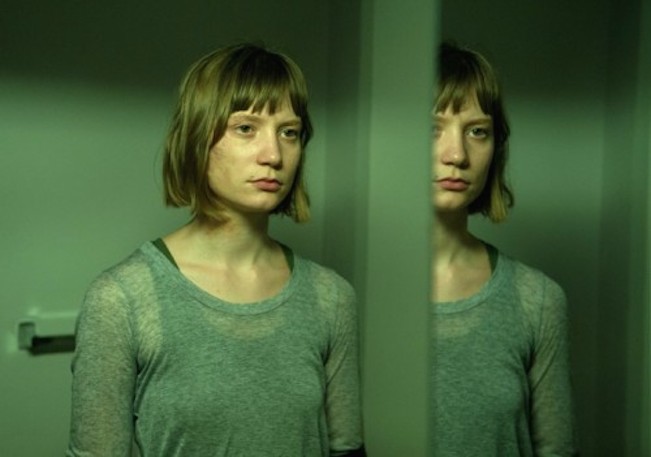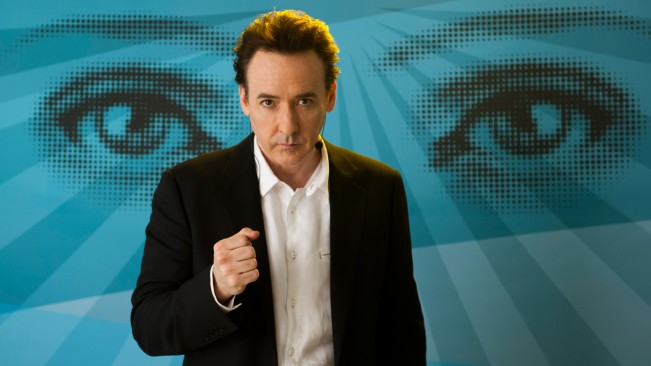By Jake Howell jake.howell@utoronto.ca
Cannes Competition Review: Maps To The Stars
 “I infect my work with madness, then let it settle,” Bruce Wagner told LA Weekly in 2005 when his satirical Hollywood novel “Dead Stars” was released. “The story is infected by something, like in David Cronenberg’s films.”
“I infect my work with madness, then let it settle,” Bruce Wagner told LA Weekly in 2005 when his satirical Hollywood novel “Dead Stars” was released. “The story is infected by something, like in David Cronenberg’s films.”
As a screenwriter and a relatively prolific novelist, Wagner has built his career on taking shots at the ironies and hypocrisies of Hollywood and popular culture, and he continues to ply his trade in Maps to the Stars. Wagner’s searing script is sick, twisted and also very funny, driving a knife deep into the ugly side of the entertainment industry and the Western world at large.
Enter Cronenberg.
The Baron of Blood’s ever-evolving canon is in the middle of his latest phase: discursive, cerebral, nihilistic cinema that has moved away from the body horror for which his earliest work was notorious. This isn’t a bad thing; it’s interesting to see masters explore different facets of their inspirations. Scholars already connect A Dangerous Method, Cosmopolis and Maps to the Stars as a sort of series, and it would be an appropriate link; if you hated Cosmopolis or found it cold and distant, there’s little reason for you to unfurl Maps to the Stars expecting something wholly different. That said, this is easily more entertaining than Cronenberg’s previous two features, as Wagner’s script is a work of brilliant cartography; this is a film where we watch Julianne Moore’s character take a dump and wipe her ass, simultaneously cracking jokes about all the pills she’s taking. (“I’m all blocked up from the Vicodin.”)
 Maps to the Stars charts the stereotypically-Hollywood Weiss family, where mother (Olivia Williams), father (John Cusack), and child actor Benjie (Evan Bird) have cut their teeth on the serrated edge that is show business. For reasons we learn later, estranged Weiss daughter Agatha (Mia Wasikowska) rejoins the family in Los Angeles after taking a personal assistant job under Havana Segrand (Julianne Moore), a wilting actress in denial, and supernatural chaos begins to ensue. Literal ghosts from the past are returning uninvited, and it’s almost Shakespearean (“Oh, my prophetic soul!”) to see them haunt these fame-obsessed, narcotic-addled characters, driving them to insanity.
Maps to the Stars charts the stereotypically-Hollywood Weiss family, where mother (Olivia Williams), father (John Cusack), and child actor Benjie (Evan Bird) have cut their teeth on the serrated edge that is show business. For reasons we learn later, estranged Weiss daughter Agatha (Mia Wasikowska) rejoins the family in Los Angeles after taking a personal assistant job under Havana Segrand (Julianne Moore), a wilting actress in denial, and supernatural chaos begins to ensue. Literal ghosts from the past are returning uninvited, and it’s almost Shakespearean (“Oh, my prophetic soul!”) to see them haunt these fame-obsessed, narcotic-addled characters, driving them to insanity.
Cronenberg is an outspoken proponent of the new digital era, and his perennial cinematographer Peter Suschitzky has done an excellent job in capturing the beauty of Los Angeles (and the exquisite interior design of LA mansions), despite the festering hideousness that lies beneath the city. His slow dollies capture the Cronenbergian creepshow perfectly.
Because Wagner’s script calls for actors to do and say depraved things with a straight face, the film couldn’t have been made—in this current form, anyway—without Cronenberg’s history of directing violence and dissecting the psycho-bizarre. Every player, especially Julianne Moore, surprises with their eagerness to go with the flow of debauchery. Mia Wasikowska is crazier here than she was in Stoker, and that’s saying something. Robert Pattinson, Cronenberg’s oddly appropriate muse, no longer needs to prove his authenticity as a proper actor. Finally, we need to see more of Evan Bird, witnessed here in his breakout role as a hilarious asshole narcissist. To be sure, Cronenberg’s navigation combined with Wagner’s pen (“it’s a fucking art film!”) make Maps to the Stars both a standout of Cannes 2014, and the best film the director has made since 2005.















